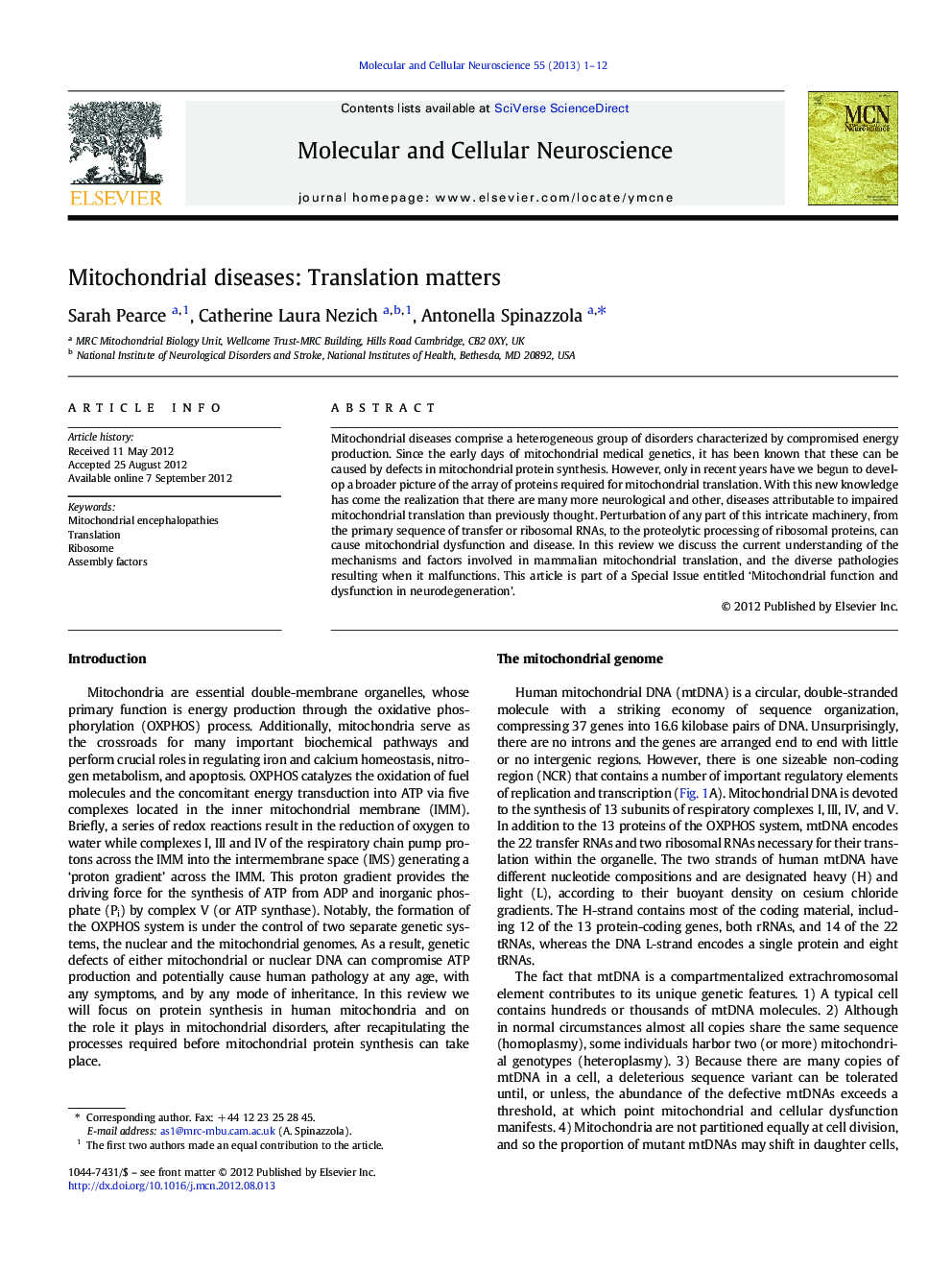| Article ID | Journal | Published Year | Pages | File Type |
|---|---|---|---|---|
| 8478689 | Molecular and Cellular Neuroscience | 2013 | 12 Pages |
Abstract
Mitochondrial diseases comprise a heterogeneous group of disorders characterized by compromised energy production. Since the early days of mitochondrial medical genetics, it has been known that these can be caused by defects in mitochondrial protein synthesis. However, only in recent years have we begun to develop a broader picture of the array of proteins required for mitochondrial translation. With this new knowledge has come the realization that there are many more neurological and other, diseases attributable to impaired mitochondrial translation than previously thought. Perturbation of any part of this intricate machinery, from the primary sequence of transfer or ribosomal RNAs, to the proteolytic processing of ribosomal proteins, can cause mitochondrial dysfunction and disease. In this review we discuss the current understanding of the mechanisms and factors involved in mammalian mitochondrial translation, and the diverse pathologies resulting when it malfunctions. This article is part of a Special Issue entitled 'Mitochondrial function and dysfunction in neurodegeneration'.
Keywords
Related Topics
Life Sciences
Biochemistry, Genetics and Molecular Biology
Cell Biology
Authors
Sarah Pearce, Catherine Laura Nezich, Antonella Spinazzola,
